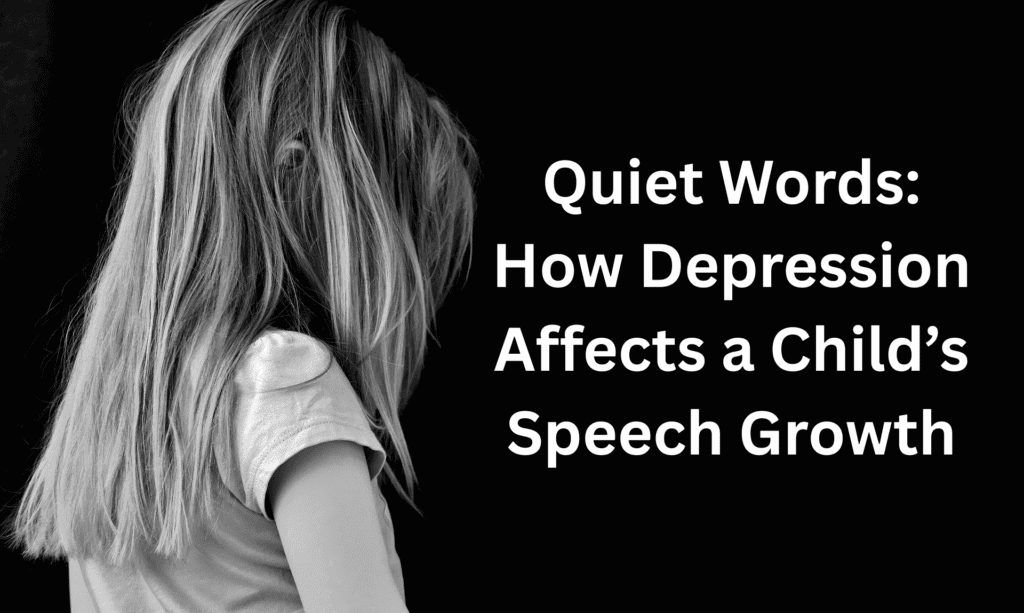Quiet Words: How Depression Affects a Child’s Speech Growth
Childhood depression is not only about feeling unhappy. Kids often describe it as making you feel like you have an empty hole or less energy. Some kids with depression often seem bored, alone, and unfocused on what’s going on around them. Furthermore, they can act very quietly and barely smile or speak when in a group. Because of this, their communication skills might be less developed, according to a speech therapist, Toronto.

How Depression Silently Slows Speech
Depression may cause kids to isolate themselves from others. One manifestation of this is that they might start staying quiet in chats. Additionally, they may not answer easy questions anymore. For that reason, they rarely have chances to practice speaking. Speech therapist, Toronto, explains that talking less means kids may not increase their vocabulary and express their emotions. As a result, children become slower to develop their speech and find it tough to socialize.
Common Communication Changes to Watch
Signs of depression in children may be represented by how they speak. Speech therapist, Toronto, shares key signs to watch out for which includes using fewer words when communicating. This may also manifest as speaking in a voice without emotion or having very long breaks in speaking or talking slowly. Moreover, you may notice that the child is not making eye contact when communicating. For certain people, nodding or shaking their head may be the preferred way of expressing themselves.
How It Affects Learning and Relationships
If we cannot easily communicate feelings and words, it is difficult to learn, said a speech therapist, Toronto. Because of depression, kids might have difficulties responding in class or chatting with other children. So, less communication leads to greater isolation, making depression worse. A lack of support may affect how confident a child becomes and how they cope with emotions.
The Role of Speech Therapy and a Speech Therapist, Toronto
With help from a speech therapist, Toronto, children who withdraw from social situations can become more social again. Improving speaking, although one part of therapy, also raises the communication comfort of these children. Games, good stories, and pictures are some of the ways SLPs help children learn to speak. They seek to build relationships by being kind and encouraging trust.
Why Emotional Support Matters and How Parents Can Help
Therapy is most effective when it is together with emotional support. Sometimes, a therapist will cooperate with a counselor to provide for the child’s entire well-being. In this way, children can express their feelings in safe environments. The help and encouragement might bring about new improvements in speaking skills. Parents can likewise help by establishing a peaceful area without any distractions for communication. Therapists, caregivers, and even teachers can try asking open-ended questions. However, it is also important to allow them to talk at their own pace. With this, it allows them to show their feelings through playing, making drawings, or telling stories. Furthermore, it is essential to praise their progress, no matter how small it may be. Being felt and accepted gives children the courage to tell their thoughts openly.
A Path Toward Connection Speech Therapist, Toronto
Though depression might make a child less talkative, it doesn’t always have to be this way. Many children who get speech care at an early age find their way to speak again. Here at Speech Link, we would be more than happy to help!
